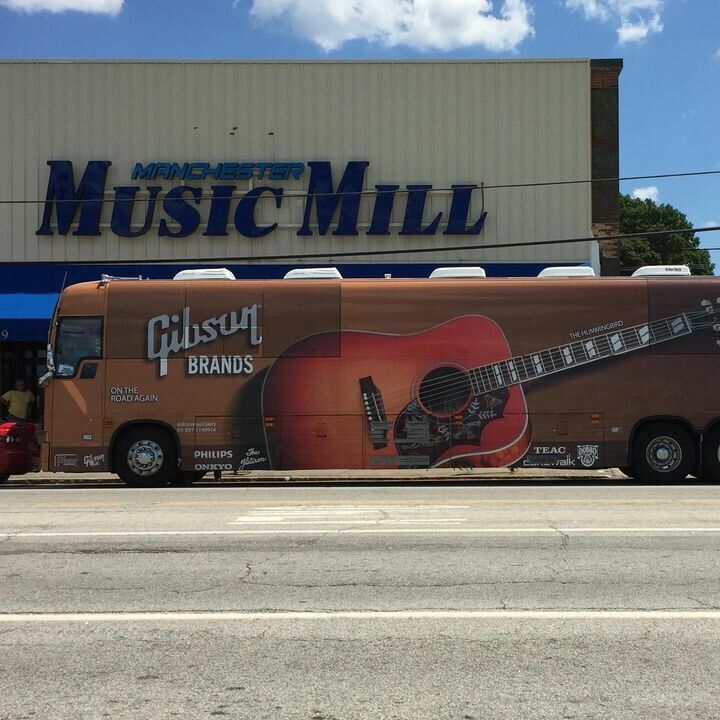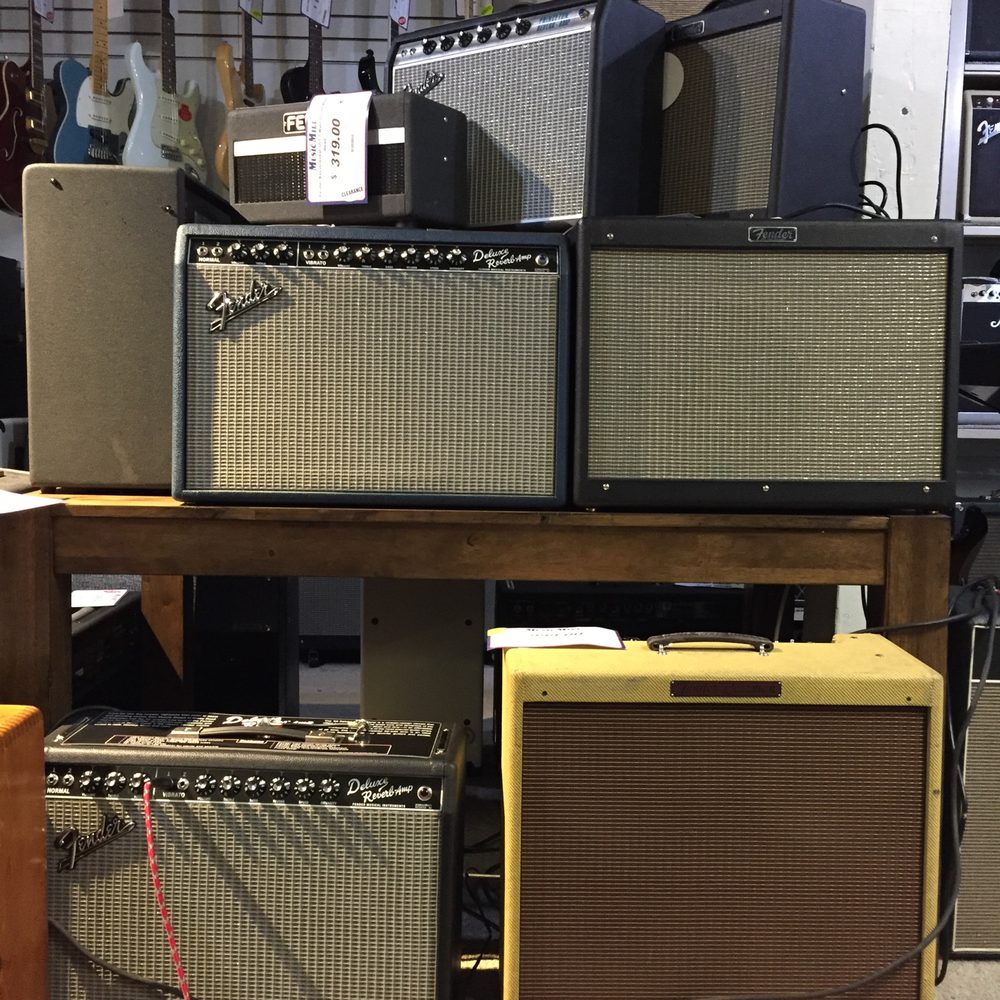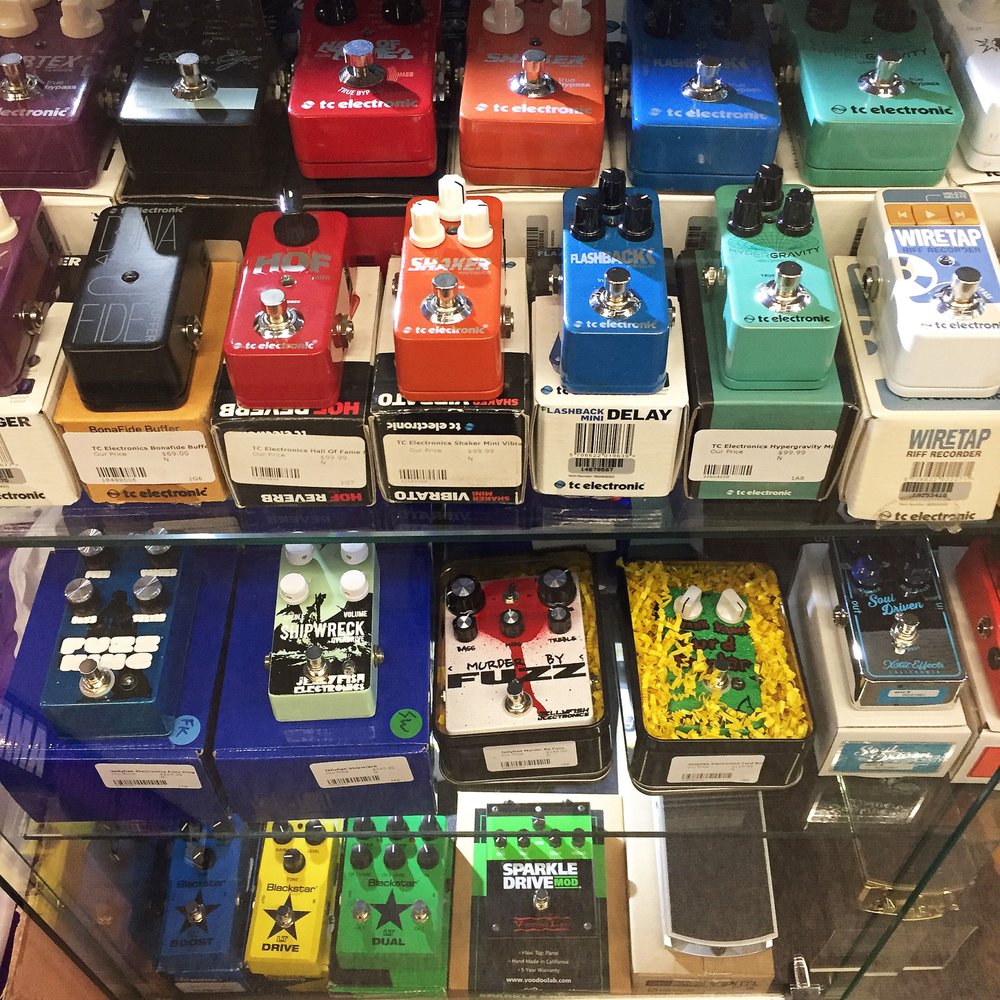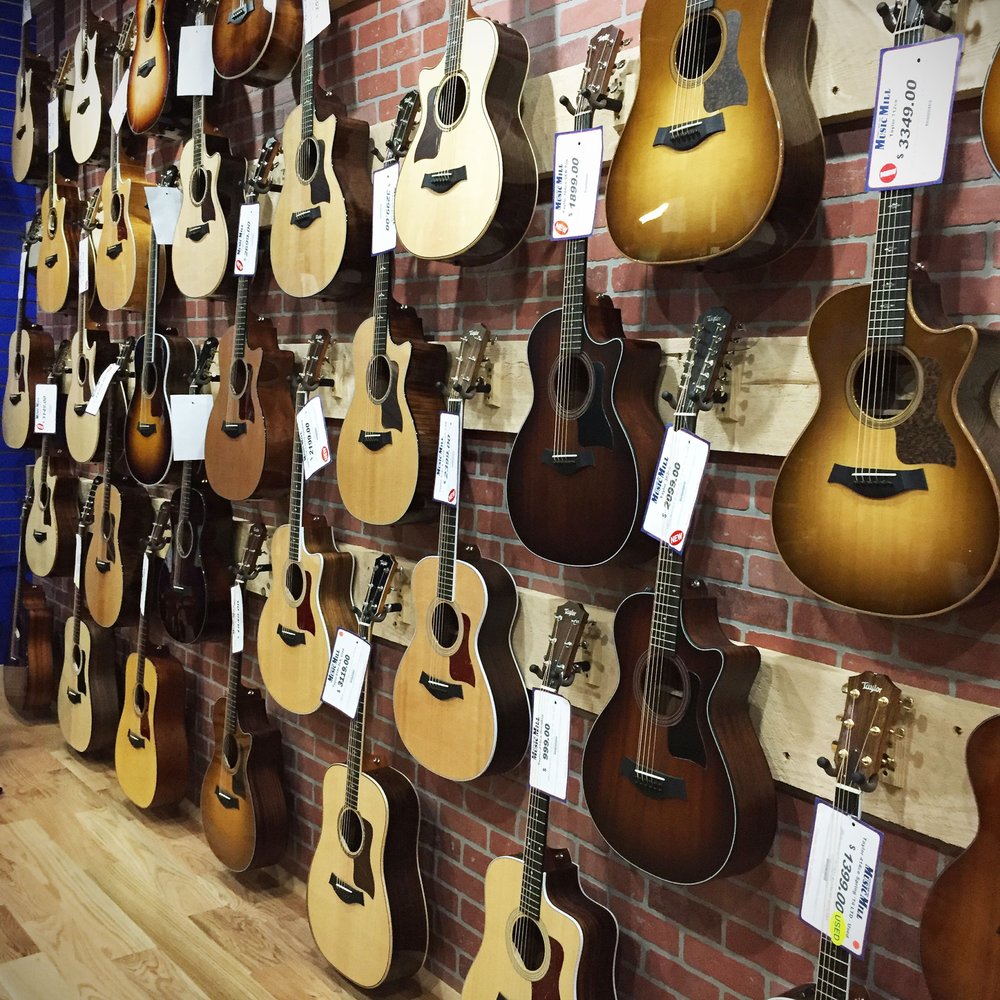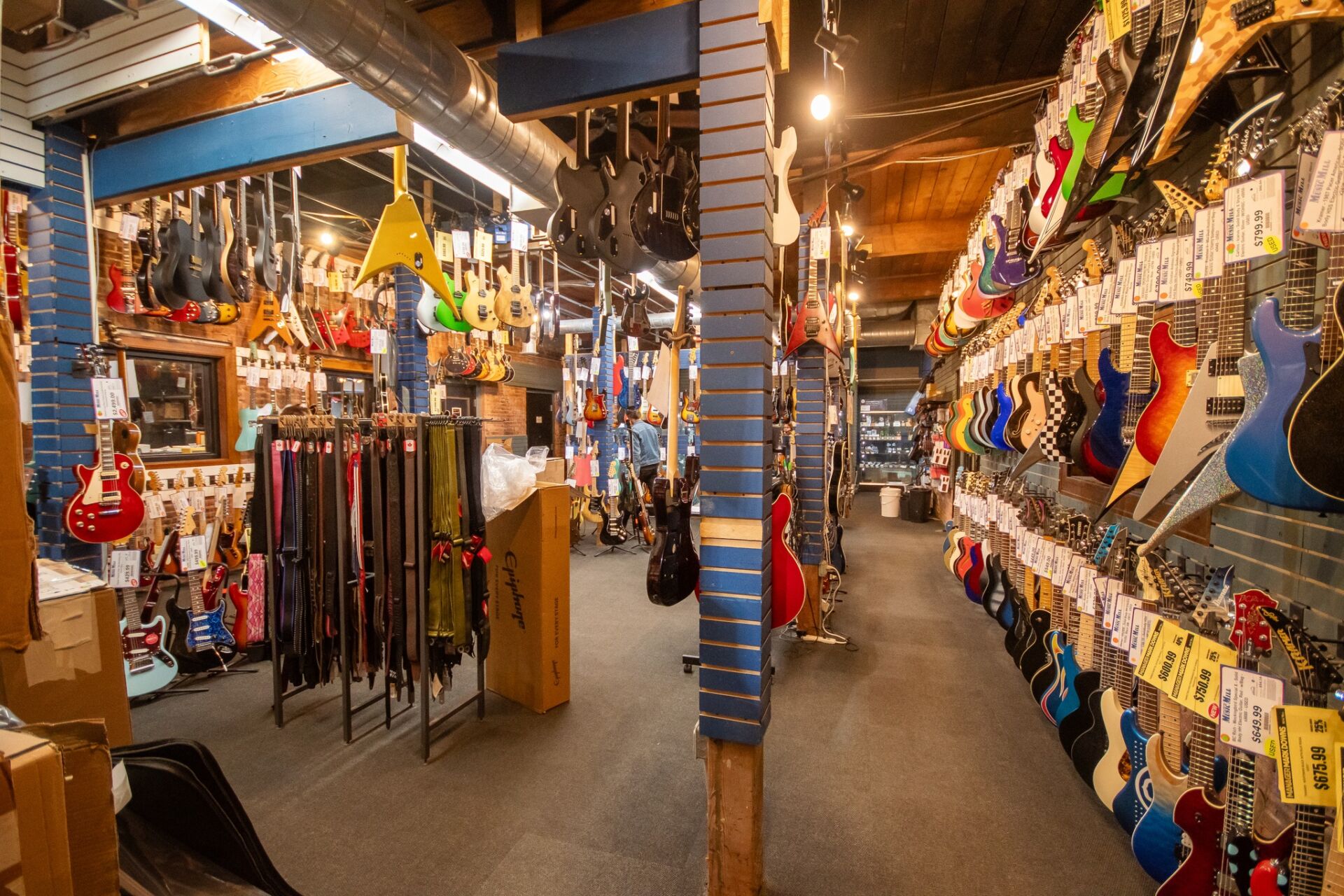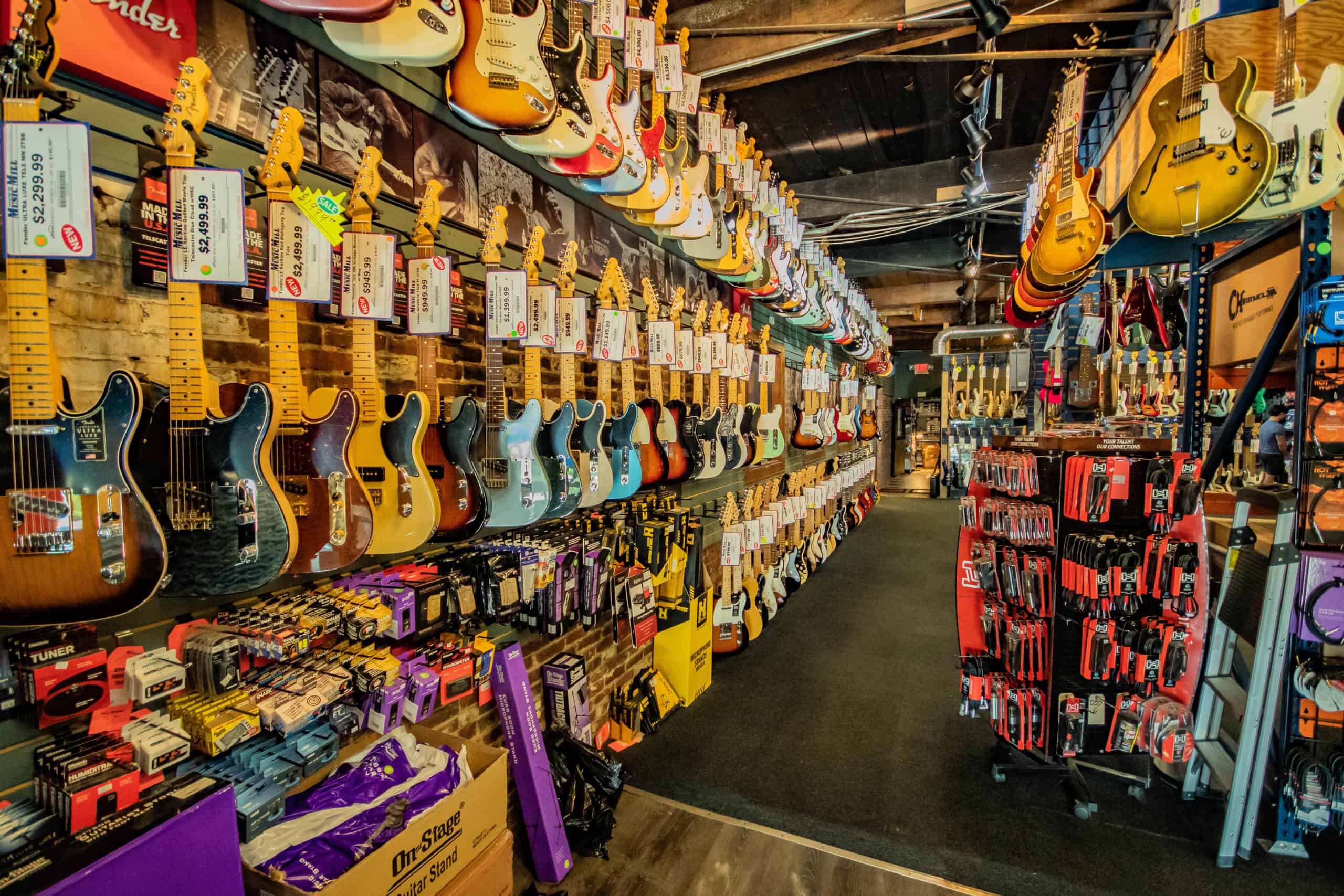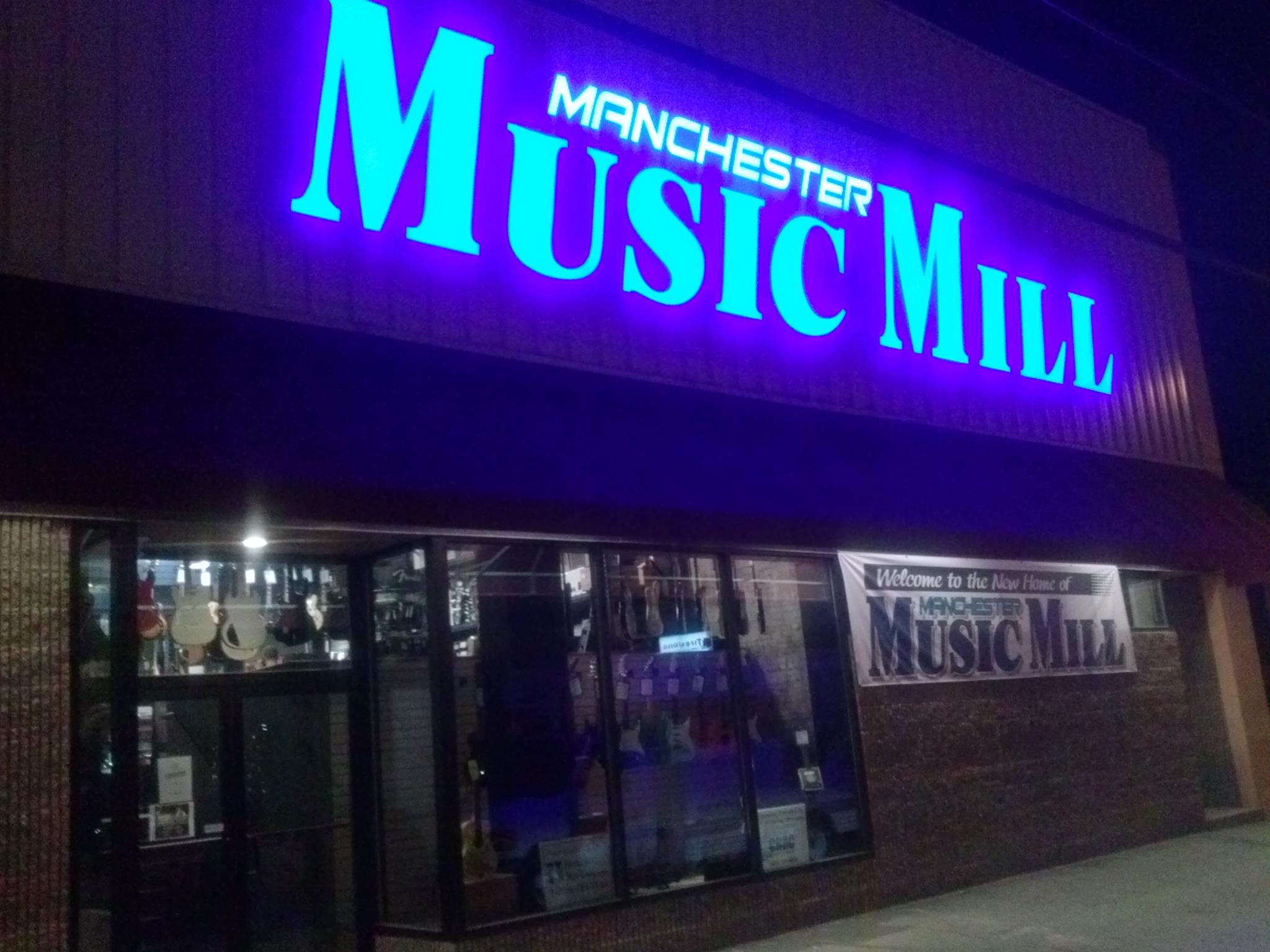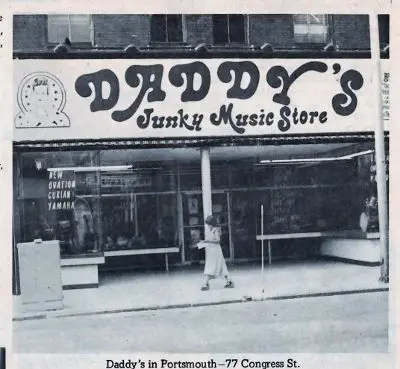Manchester Music Mill

It’s 2024 and the heyday of bricks-and-mortar retailing is largely over, especially in the musical-instrument space. It’s simply too easy to shop online and have items show up at your door, often the very next day. Joe Lacerda, owner and chief operating officer of Manchester Music Mill in New Hampshire, says he wouldn’t recommend opening a physical musical-instrument store to anyone as a good way to earn a living in the long term unless they have some kind of specialty niche. With expenses and labor costs being at an all-time high, it is hard, if not impossible, to disagree.
In 1972, there were over 11,000 musical-instrument dealers in the United States. Lacerda opened his store in 2005 and he says there were about 8,000 at that time. Today, that number has dropped to just 6,600, with 90% of the total industry revenue coming from the top 200, so clearly the average bricks-and-mortar musical-instrument retailer is far from thriving. But Manchester Music Mill sure is! What started with a $10,000 investment in 2005 has become a booming rock ‘n’ roll business that grossed $18 million in sales in 2023.
Background
Lacerda, a Massachusetts native, was born in 1975 and grew up with a passion for music thanks in large part to his mother and grandmother, who he says were always singing and playing piano. He started playing guitar when he was 13, performed formally and recreationally in high school bands and, when he was 17, joined the Fall River-based 215th Army National Guard Band, in which he played guitar and tuba. In addition to being a miliary dream job, it helped him pay for college costs and he received his degree in engineering from the University of Massachusetts Dartmouth in 1997.
Lacerda spent the next eight years developing his professional career, met his wife Dawn, started a family and went on to get a master’s in business from Strayer University in Washington, DC. With his deep-rooted appreciation for music, his business know-how and his belief that life was too short to work in an industry that didn’t make him happy, he set off in search of opportunities in the musical-equipment sector.
In 2004, he combined his analytical and writing skills from his engineering background and his love for music gear and started buying and selling used music equipment online while still working full time as an engineer. When he saw an advertisement for a small independent musical-instrument store in Baldwinville, Massachusetts, that was liquidating, he bought their inventory and fixtures for $10,000, intending to sell the contents on eBay. He packed up everything and – much to Dawn’s chagrin – brought it all home, filling the dining room, the living room and any other space he could find in the house. Since he and Dawn had a newborn baby at the time, they needed their house back!
While trying to find other ways he could sell the equipment, Lacerda came across a tiny musical-instrument store (about 300 square feet) in Manchester, New Hampshire, called South Main Sound and made a deal with the owners to sell his recently acquired gear and share the profits. On top of that, he agreed to contribute funds to help the retailer buy new products to sell in the store. For Lacerda, this new “win-win” arrangement made the possibility of him leaving his engineering life and starting a new career in the music business begin to feel very real.
Founding, Expansion, Current Location
In 2005, 30 year old Lacerda partnered with the owners of South Main Sound, Harley Walker and Donna Walsh, to open an 800-square-foot store within an old mill building along the Merrimack River in Manchester. It was the perfect place to get started since it housed some 50 local bands that rehearsed day and night, each with their own space. Lacerda dedicated all his time to taking care of the musicians’ needs and they spread the word about the new store, allowing it to grow quickly by word of mouth. Manchester Music Mill officially opened in October 2005.
Lacerda soon determined that the partnership was not equitable since he was putting in all the capital, making the key connections for growth and working tirelessly to determine his customers’ exact needs. He made the difficult (and risky) decision to pay off his partners, leave engineering for good and dedicate his life to MMM. In 2006, he relocated the store to downtown Manchester and by 2010 it had expanded from 800 square feet to 5,900.
In 2011, when local competitor Daddy’s Junky Music closed its doors, demand at MMM doubled, practically overnight. Lacerda had to double the number of employees, find more resources and space and figure out how to maintain the company’s core values – such as providing customers with the same level of professionalism he himself would expect as a customer – in the face of such rapid growth. He saw a major staffing opportunity with Daddy’s closing and offered jobs to members of Daddy’s nationally recognized service department, led by guitar tech/luthier Doug MacCormack. Many took him up on his offer, so Lacerda bought all of Daddy’s service department’s tools and inventory and instantly MMM had a world-class service department, now known as The Music Techs. Today ,the department occupies 3,000 square feet of MMM’s footprint servicing guitars, electronics, keyboards and other items while doing warranty service for a number of manufacturers.
In 2013, Lacerda bought the building where MMM is currently located (on Elm Street in downtown Manchester), which helped keep MMM’s fixed costs under control. In 2018, he purchased the building directly behind the Elm Street store which allowed for a dedicated warehouse, a shipping area, a recording studio and a showroom for audio equipment, recording gear and keyboards.
Current Staff, Revenue
Manchester Music Mill is currently the largest independent musical-instrument store in New England and features a massive selection of new and used items at all price points in most musical categories. With 34 full-time staff, revenue of $18 million in 2023 (up from $31,000 in 2005) and a total of 29,000 square feet for the store and repair shop, MMM has over 100,000 customers, according to Lacerda, mostly in the New England area. He and Dawn are as actively involved in the direction, culture and growth of the operation as they were when it first opened in 2005.
(by Fred Bramante)
Fred Bramante was the founder and chief executive of Daddy’s Junky Music.

